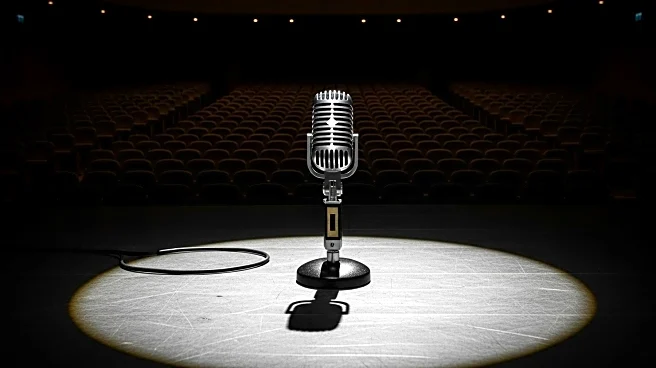What's Happening?
On September 23, 2025, Jimmy Kimmel delivered a monologue on his show 'Jimmy Kimmel Live!' that included the line, 'I’m not gonna change anyone’s mind.' This statement quickly became a national flashpoint, leading to significant network reactions. Major station groups preempted the show, affecting approximately 25% of U.S. TV homes. The Federal Communications Commission (FCC) issued warnings to affiliates, and the incident sparked debates over free speech and local TV economics. The controversy was further fueled by the rapid spread of clips online, which garnered over 1,000,000 views within hours.
Why It's Important?
The incident highlights the tension between free speech and regulatory oversight in the media industry. The FCC's involvement underscores the potential for regulatory action against broadcasters, which could have significant implications for how networks manage content and respond to public controversies. The preemption of Kimmel's show by major station groups reflects the delicate balance between protecting local programming interests and adhering to broader corporate policies. This situation serves as a litmus test for the media industry, as it navigates the complexities of content regulation and audience expectations.
What's Next?
The future of late-night programming may see continued disruptions, with some markets opting to stream clips online while others maintain local preemptions. The FCC's stance could influence future affiliate mergers and business deals. Creative communities are likely to continue advocating for free speech, while station owners seek stable commercial terms. The incident may lead to a reevaluation of how broadcasters, regulators, and audiences interact, potentially reshaping the landscape of late-night television.
Beyond the Headlines
The controversy surrounding Jimmy Kimmel's monologue raises broader questions about the role of comedy in political discourse and the responsibilities of media figures in shaping public opinion. It also highlights the power of digital platforms in amplifying content and influencing public perception. As the media industry grapples with these challenges, the incident may prompt discussions about ethical standards and the boundaries of comedic expression in a politically charged environment.









